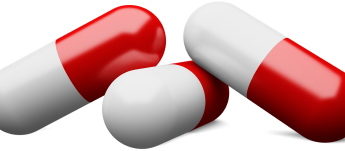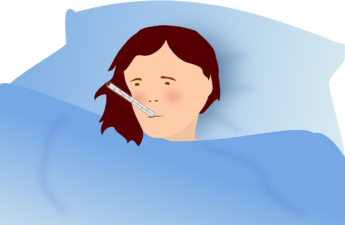Category: Infectious Disease
King County’s vaccination verification policy to end March 1st.
King County is ending the local health order requiring proof of COVID-19 vaccination or a negative test for entry into restaurants and bars, indoor recreational events and establishments, or outdoor events.
Lifesaving COVID Medications Can Be Hard to Come By
Early in the pandemic, states competed for the limited supply of ventilators, personal protective equipment and tests in a chaotic free-for-all. To avoid a repeat, the federal government is buying millions of doses of the COVID-19 therapeutic medications and allocating those to states, which in turn distribute them to pharmacies or hospitals. In many places, what is arriving is far less than the need.
Washington state re-opens COVID-19 test portal for the third time.
Rapid antigen tests can be ordered and shipped directly to Washington households at no-cost.
Why taking fever-reducing meds and drinking fluids may not be the best way to treat flu and fever
As flu season progresses, so does the chorus of advice, professional and otherwise, to drink plenty of fluids and take fever-reducing medications, like acetaminophen, ibuprofen or aspirin. These recommendations, well-intentioned and firmly entrenched, offer comfort to those sidelined with fever, flu or vaccine side effects. But you may be surprised to learn the science supporting these recommendations is speculative at best, harmful at worst and comes with caveats.
What we know now about COVID immunity after infection – including Omicron and Delta variants
We’re starting to get a more detailed understanding of COVID immunity across variants. Here’s what we know so far . . .
What is the best mask for COVID-19?
A mechanical engineer explains the science after 2 years of testing masks in his lab
Drug-Resistant Malaria Is Emerging in Africa. Is the World Ready?
A growing number of malaria cases are proving to be resistant to artemisinin-based combination therapies, the mainstay treatment of the deadly parasite.
King County hospitals issue urgent call to action: ‘We Need your Help’
Capacity levels were critical before the current surge with non-COVID care and back-logged surgeries. The surge has exacerbated the situation, making it difficult to provide essential care for non-COVID health concerns.
Washington launches at-home test portal
Beginning today, Washington state residents will be able to visit www.sayyescovidhometest.org to order rapid-antigen COVID tests online, and will receive those tests delivered at no cost.
Kidney Failure, Emergency Rooms and Medical Debt. The Unseen Costs of Food Poisoning.
Hundreds of people die every year in the United States after eating food tainted with salmonella, listeria and other dangerous pathogens. As wrenching as those deaths are, though, they are only the tip of the toll that food poisoning takes on the United States, where millions more people are sickened each year.
Myocarditis: COVID-19 is a much bigger risk to the heart than vaccination
What do the numbers tell us about COVID-19, vaccines and myocarditis?
COVID: why T cell vaccines could be the key to long-term immunity
T cells designed to fight COVID also appear to be much longer lasting in the human body than antibodies.
What Patients Can Learn With Confidence From One Negative Rapid Test (Hint: Very Little)
There are just so many variables. Testing may come either too soon, before enough virus is present to detect, or too late, after a person has already spread the virus to others. And most rapid tests, even according to their instructions, are meant to be used in pairs — generally a day or two apart — for increased accuracy. Despite that, a few brands are sold one to a box and, with the tests sometimes expensive and in short supply, families are often relying on a single screening.
Justices Block Broad Worker Vaccine Requirement, Allow Health Worker Mandate to Proceed
The OSHA rules are opposed by many business groups, led by the small business advocacy organization the National Federation of Independent Business. It argued that allowing the rules to take effect would leave businesses “irreparably harmed,” both by the costs of compliance and the possibility that workers would quit rather than accept the vaccine.
Long COVID: For the 1 in 10 patients who become long-haulers, COVID-19 has lasting effects
Long COVID, or post-COVID condition, features symptoms that can include trouble breathing, chest pain, brain “fog,” fatigue, loss of smell or taste, nausea, anxiety and depression, among others. It appears to affect about one in 10 people who have recovered from a COVID-19 infection.












